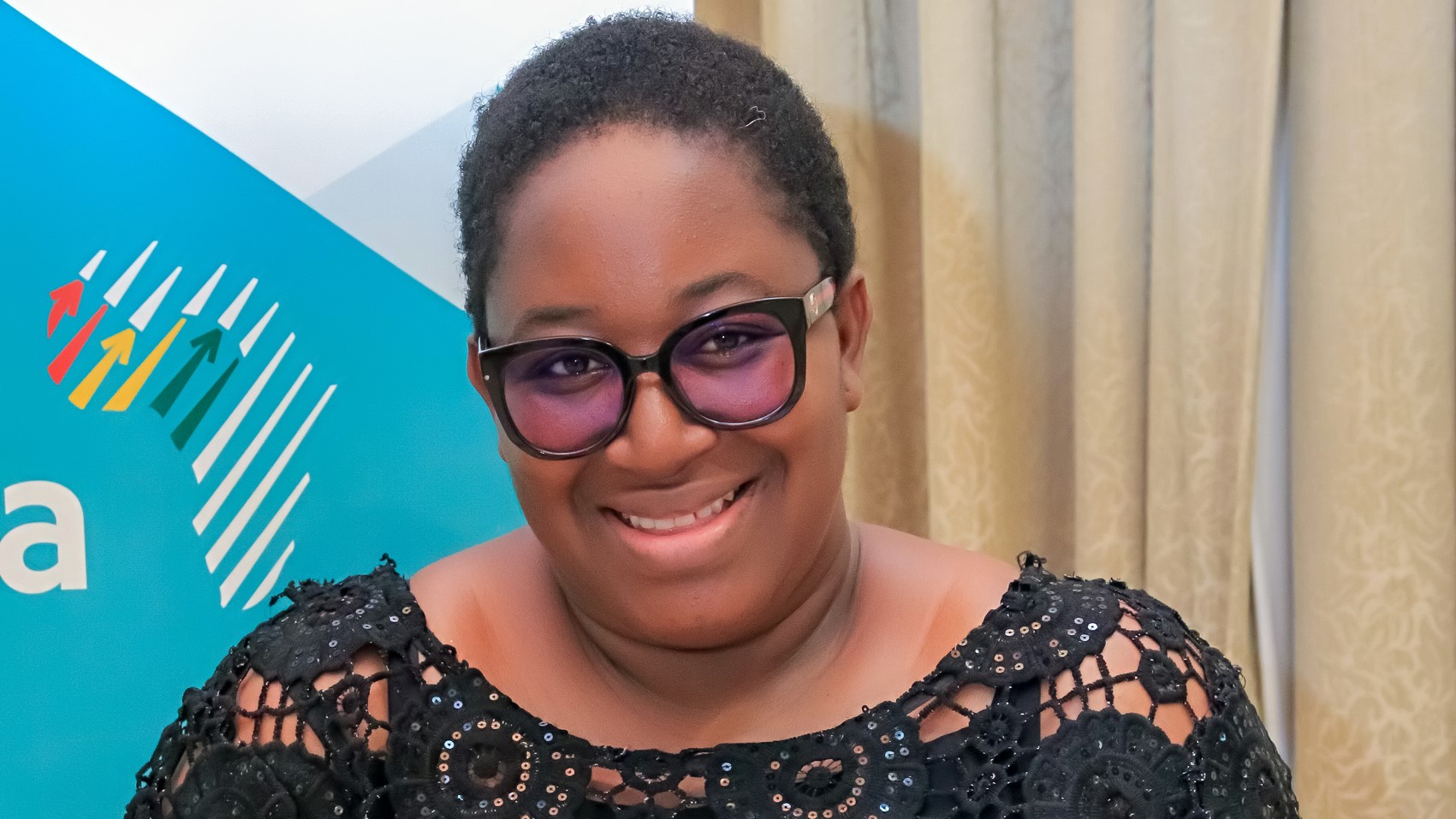UNIDO's partnership powers growth of Ghana's natural cosmetics sector
03 April 2024 UNIDO

How one mother's concern for her children turned into a business that empowers others is the story of Michelle Ayog-Nying Dassah of Ghana. When her twins suffered from rashes, Dassah turned to nature's pharmacy, mixing Shea butter with neem oil to craft a soothing ointment which demonstrated incredible curative qualities and rapidly healed her children. From that moment on, Dassah's entrepreneurship spirit was ignited, and she founded Laam Shea Products, a company that produces natural cosmetics.
Dassah’s business grew and became part of the Cosmetic Middle cluster, where she not only furthered her own venture but also took on the role of mentor, impacting many entrepreneurs - especially young people and women, by supporting them in improving their technical skills and creating jobs for their sustainable livelihoods.
Ghana's natural resources, including shea butter, cocoa butter and tropical essential oils, are highly sought after for organic skincare products around the world. With an increasing awareness among consumers about the ingredients they use on their skin, the demand for natural cosmetics and transparency in their production has risen.
Despite its enormous potential in this area, Ghana's progress is hindered by several challenges. Local businesses face obstacles in meeting the rigorous standards of the worldwide market. They frequently struggle to acquire the necessary resources and knowledge for product certification and are unable to reach accredited testing facilities.
For this reason, UNIDO, through the West Africa Competitiveness Programme (WACOMP) in Ghana, funded by the European Union with a a co-contribution from Germany, is implementing activities to enhance knowledge sharing, upgrading quality manufacturing practices and strengthening market access for Ghana’s young entrepreneurs in the natural cosmetics, cassava and fruit processing sectors.
In collaboration with the Ghana Standards Authority, the project developed 16 standards (two for cassava and 14 for cosmetics and personal care products) to enhance the competitiveness and quality of the cassava and cosmetics value chains. WACOMP-Ghana also developed Cosmetics Formulation Guidelines, which not only were adopted by entrepreneurs like Michelle to improve the quality of their products but were used to develop a new Technical and Vocational Education and Training (TVET) curriculum aimed at providing young people with technical skills essential to increase their employability and enhance their livelihoods.
The impact of the project is tangible in the progress of entrepreneurs like Michelle Ayog-Nying Dassah. Thanks to WACOMP trainings, Laam Shea received orders from all over Ghana, the UK and across the globe for their newly formulated handcraft soaps.
"UNIDO created the opportunity for entrepreneurs like me and strengthened my technical and quality skills in developing standardized formulas", Michelle says.
After taking part in the development of the new TVET curriculum, Michelle Ayog-Nying Dassah also participated as a lecturer in the training course, promoting standardization and quality, teaching the young people standardized cosmetics formulations for handcrafted soaps and emulsions. Now she plans to set up a small training centre to ensure that even more youth and women entrepreneurs can join the cosmetic cluster and take advantage of it:
"UNIDO enhanced my capabilities and gave me the courage it takes to lead and guide young entrepreneurs by the example'', she says.
Project name: West Africa Competitiveness Programme – Ghana.